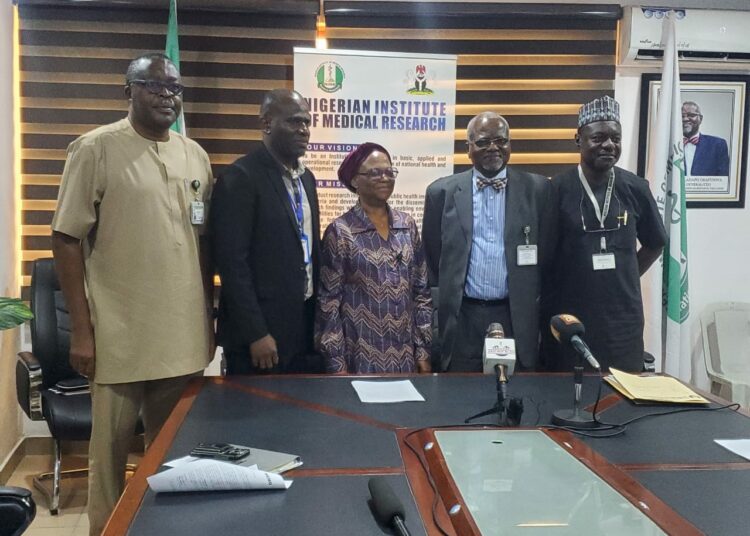The director-general of the Nigerian Institute of Medical Research (NIMR), Prof Oladapo Obafunwa, has raised an alarm over a growing electricity crisis threatening the country’s foremost medical research institution, citing skyrocketing monthly power bills as high as ₦52 million and worsening supply conditions.
At a media briefing in Lagos on Friday, the DG disclosed that the institute is now at a critical juncture, with ongoing scientific research, including studies reliant on temperature-sensitive reagents, delicate biomedical samples and donor-funded equipment, being endangered due to erratic electricity and unsustainable billing practices.
“We received electricity bills of ₦49 million in August 2024, ₦48 million in September 2024, ₦44 million in October 2024, and now ₦52 million in April, 2025, despite suffering regular power outages. This is not just about high bills; it’s about the survival of crucial health research in Nigeria,” he said.
Despite repeated appeals and official correspondence to Eko Electricity Distribution Company (EKEDC), Obafunwa lamented that NIMR has continued to be billed through estimated charges, with no functional electricity meter installed on the premises. “We asked for a meter so that we can verify our usage, but officials told us outright that, ‘You’re not going to get it.’ Meanwhile, the meter they claim exists is locked away in their own premises,” he alleged.
The institute said it has resorted to shutting down power in staff residential quarters daily – from 9am to 4pm – in an attempt to reduce consumption, yet, the bills have continued to rise. “The only time the bill dropped – to ₦34 million – was around October 2024, and that was short-lived. Once they noticed we were installing our own meter, the bill jumped back up,” he stated.
Obafunwa revealed that EKEDC issued a disconnection notice just after NIMR had paid ₦35 million covering 50 percent of April’s bill, the third installment of a ₦6.7 million backlog, and part of the VAT.
“Beyond financial strains, the implications on Nigeria’s public health sector are profound. NIMR is home to vital research on infectious diseases, including HIV/AIDS, tuberculosis, malaria and more recently, COVID-19.”
The institute depends heavily on funding and material support from foreign donors – many of whom are beginning to withdraw due to operational instability.
“We are not a tertiary hospital generating revenue. We are not a university with students paying fees. We are a research institution with life-saving work depending on consistency. We are being punished for trying to do the right thing,” the DG said.
Obafunwa said letters have been sent to the National Electricity Regulatory Commission (NERC), the Federal Ministry of Health and other relevant agencies. He also confirmed that the House of Representatives had raised the institute’s electricity allocation from ₦20 million in 2024 to ₦145 million for 2025, acknowledging the seriousness of the crisis.
“Every day we go without stable power, our research suffers; our capacity to deliver on health innovation diminishes and the country pays the price in public health,” the DG said.
He called on the federal government, regulatory authorities and the public to intervene urgently. “We cannot be expected to function under these conditions. If we lose our research edge, we lose our future in healthcare,” he added.
In his reaction, the general manager, Corporate Communications and Strategy at Eko Electricity Distribution Company, Babatunde Lasaki told LEADERSHIP Weekend that the recent hikes in electricity tariffs were not arbitrarily imposed by distribution companies but set by the NERC, the industry’s regulatory body.
Reacting to the complaint from the NIMR over its electricity bills, Lasaki clarified that despite the privatisation of the power sector, the industry remains under the strong regulation of the government.
“People need to understand that while the electricity distribution companies are now privately operated, they are still regulated by the government. Tariff rates are not decided by us, but by NERC,” Lasaki told LEADERSHIP Weekend in an exclusive interview.
He explained that the current tariff structure is based on service bands, with Band A customers – those who receive an average of 20 hours of electricity supply daily – paying N209 per kilowatt/hour. Customers in lower bands like B and E pay significantly less, reflecting the quality and duration of power supply they receive.
However, Lasaki stressed that Band A consumers are constantly monitored, and if the power supply drops below the 20-hour daily threshold over a sustained period, their classification is automatically downgraded. “Even the regulator monitors Band A service delivery. If within a month, a customer doesn’t get at least 20 hours daily for 10 to 15 days, their band is downgraded. That’s the standard practice,” he said.
Acknowledging the financial strain that high electricity tariffs place on both private and public institutions, Lasaki advocated for the adoption of alternative energy sources like solar power. “There’s a reason the federal government recently approved N10 billion for the installation of solar panels in government institutions. Electricity is getting more expensive. Even I’ve started switching to solar to cut costs,” he said.
He emphasized that while sympathy may exist for research institutions and other non-commercial entities, there is little the distribution companies can do to waive bills, as they are profit-oriented private entities still bound to pay their suppliers. “We understand their plight, but if they continue to default, the bills will accumulate and become unmanageable. As a private company, we must pay our dues to stay afloat,” Lasaki affirmed.





